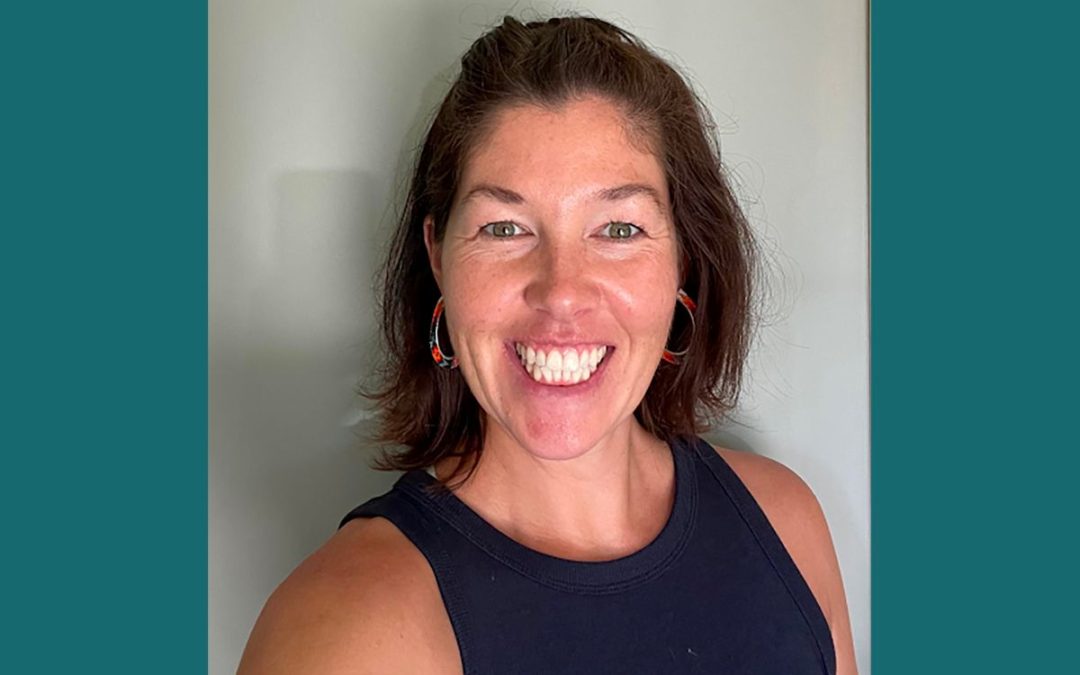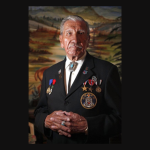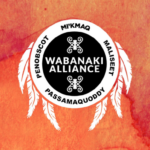Brianne Lolar is one of three individuals honored by the Wabanaki Alliance at the 2025 Nihkaniyane event. A citizen of the Penobscot Nation, Lolar is a beloved elementary school teacher who left the classroom four years ago to begin doing equally important work as the first Wabanaki Studies Specialist for the Maine Department of Education. In that work she is bringing voice and representation to the Wabanaki people through partnerships with Indigenous and non-Indigenous educators and organizations who’ve been working together to achieve unmet goals and objectives of the 2001 requiring that Wabanaki history and culture be taught and integrated into the K-12 curriculum.
A 2022 report from the Wabanaki Alliance, Abbe Museum, ACLU of Maine, and Maine Indian Tribal-State Commission noted the law has not been implemented meaningfully across the state. Those findings and the work of a task force leading up to the report are what led Lolar to leave her “happy place” of teaching in the classroom and enter the challenging give-and-take realm of state government where she’s been working on year-to-year contracts to help teachers and school districts fulfill the goals of the 2001 law.
“I knew I can’t complain about nothing being done if I’m not going to step up and sacrifice,” she says. “My thinking was ‘It’s just a year and I’ll go back to teaching. It could go away again at any time. So I need to make the most of this opportunity.”
Her sense of urgency motivated a “can-do” approach that made sure yearly progress was being made to create a solid foundation for Wabanaki studies being taught across the entire state.
“In government, I’ve learned, you have to prove the data showing this job is making a difference,” Lolar says. “When I first started I thought about ‘What are the barriers?’ It was clear it wasn’t being done in every school. What are the barriers? What’s holding you back?”
The answer came back: Resources. Teachers and school districts didn’t know where to start, or they didn’t know if resources they might find on their own were credible. “So we leaned in, we produced, and now we’ve put out there a ton of resources that can be used in the classroom,” Lolar says.
Those resources include detailed K-12 lesson plans and links to micro-courses on important topics related to Wabanaki culture and history. They were created through extensive collaboration between educators and Wabanaki knowledge-sharers — with Lolar adding that there are now more than 40 Wabanaki advisors lined up as being available for contracted work within schools throughout Maine for the current school year.
There’s so much more that needs to be done, Lolar says, noting that her DOE contract is set to expire next June.
But Lolar already knows her efforts in collaboration with many others already are bearing fruit. Her daughter is a substitute teacher — not in the same school, but in the district where she used to teach and it happens to be close to Indian Island. Lolar’s daughter pulled up the pre-K module introducing some of the Wabanaki nations and their languages. The students were enthused and really engaged in the module’s lessons.
At the end, one of the little girls came over to Lolar’s daughter and said, “I never told anyone before, but I’m Wabanaki too.”
“So, right, just that! She’s being seen and being proud of that — that being Wabanaki is something to be proud of,” Lolar says. “We hear so many Wabanaki adults saying, ‘If I had this growing up, how differently my sense of self-worth would have been! It would have helped in my keeping on going forward.”
Asked what her “dream of dreams” might be for Wabanaki studies 20 years from now, she ponders the question with quiet reflection before replying: “Right now I’m building the curriculum: Wabanaki Studies 101. But 20 years from now, I hope it will be so much more in-depth, at a higher level.”
She quickly adds, “It’s not just about Wabanaki children. It’s about all children.”
LD 1474, An Act to Strengthen the Teaching of Wabanaki Studies in Maine Schools, was adopted by the House and Senate in the 132nd Legislature’s first session, but languishes on the appropriations table for lack of funding and has been carried over into the next session.
Lolar says enacting the bill into law with funding will eliminate the year-to-year provisional funding and obstacles that created an ebb-and-flow cycle of school districts complying with the 2001 Wabanaki studies law.
“It isn’t good for anyone,” she says. “So my dream for 20 years from now: We have a Wabanaki Studies Department in the Department of Education that’s working in partnership with everyone else in the department. So that what everyone else is doing, they are seeing this as Wabanaki homelands, they are making that connection: We are equals in this. Everybody needs to share.”
Return to the Nihkaniyane: Let’s Go Forward Together post to read more about honorees John Banks and Emma Soctomah.





